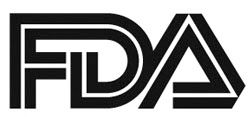Novel Agent Receives FDA Orphan Drug Designation for GVHD
The FDA has granted 2 orphan drug designations to ALPN-101 for both the prevention and treatment of acute graft-versus-host disease, according to a press release from Alpine Immune Sciences.

The FDA has granted 2 orphan drug designations to ALPN-101 for both the prevention and treatment of acute graft-versus-host disease (GVHD), according to a press release from Alpine Immune Sciences.1
“We are pleased to receive these important designations from the FDA in acute GVHD, where current standard therapies remain inadequate to prevent or control the disease,” said Mitchell H. Gold, MD, executive chairman and CEO of Alpine, in a statement. “ALPN-101’s unique mechanism has the potential to serve as a groundbreaking medicine for patients suffering from a range of progressive and devastating autoimmune/inflammatory indications with little or no treatment options available to them today.”
ALPN-101 is a first-in-class Fc fusion protein of a human inducible T-cell costimulator (ICOS) ligand variant immunoglobulin domain that simultaneously inhibits both the CD28 and ICOS pathways. Both of these pathways play a role in T-cell activation. In a preclinical xenograft model of GVHD, the agent demonstrated superior activity to agents individually blocking the CD28 and ICOS pathways.2
The agent was investigated in a phase I study of adult healthy volunteers. In findings presented at the 2019 ASH Annual Meeting, the volunteers tolerated the agent well in either intravenous or subcutaneous doses. No signs of cytokine release, infusion-related reactions, hypersensitivity, or agonist activity were observed. Additionally, the investigators reported that dose-dependent inhibition of T-cell activation was seen.3,4
ALPN-101 will be studied in the phase Ib open-label, dose-escalation and -expansion trial of patients with active steroid-refractory or -resistant acute GVHD (AIS-A02/Balance; NCT04227938). The trial is not yet recruiting but details of the study were discussed at the ASH Annual Meeting.
The trial will be conducted at about 10 US centers and will enroll about 72 patients in the dose-escalation phase and 25 in the dose-expansion phase. Patients will receive a single intravenous dose of ALPN-101 at varying dose levels from 0.001 mg/kg to 20 mg/kg until the optimal dose for the second phase is determined.
For the study, corticosteroid resistance or refractory was defined as either progression of acute GVHD within 5 days of starting treatment with ≥2 mg/kg/day of prednisone or an equivalent, failure to improve within 7 days of initiating treatment, or an incomplete response after 28 days of immunosuppressive treatment with steroids. Additionally, to be eligible, patients had to have received their first allogeneic stem cell transplantation from any donor source and be receiving a conditioning regimen, have grade II to IV acute GVHD, and a Karnofsky performance status ≥40. Those receiving salvage therapy needed to have up to 2 days between treatment with salvage therapy and starting ALPN-101 and no ongoing adverse events from treatment of grade ≥3.
Patients who had veno-occlusive disease, were receiving dialysis, had prior donor lymphocyte infusion, active malignant disease, corticosteroid use for an indication other than GVHD, active and uncontrolled infection, medical comorbidities that might interfere with the trial, and those who had received recent treatment with other agents were excluded from participating in the trial.
Adverse events and safety will be the primary outcome measure of the study with secondary end points including objective response rate, duration of response, failure-free survival, event-free survival, non-relapse mortality, malignancy relapse or progression, overall survival, and pharmacokinetic assessments.
References
- Alpine Immune Sciences’ ALPN-101 Receives FDA Orphan Drug Designations for the Prevention and Treatment of Acute Graft Versus Host Disease [press release]. Seattle, WA: Alpine Immune Sciences, Inc.; March 18, 2020. https://bwnews.pr/33qD57k. Accessed March 18, 2020.
- Dillon SR, Yang J, Lewis KE, et al. Alpn-101, a Dual ICOS/CD28 Antagonist, Demonstrates Potent and Dose-Dependent Suppression of Graft Vs. Host Disease (GvHD) in a Human/NSG Mouse Xenograft Model, with Activity Superior to CD28 or ICOS Single Pathway Antagonists.Biol Blood Marrow Transplant.2019;25(3):S290-S291.
- Alpine Immune Sciences Presents ALPN-101 Phase 1 Healthy Volunteer Study Data and Details of Upcoming Phase I/II BALANCE GVHD Study at the 61st American Society of Hematology Annual Meeting [press release]. Seattle, WA: Alpine Immune Sciences, Inc.; December 9, 2019. https://bwnews.pr/3b8HYV4. Accessed March 18, 2020.
- Yang J, Hillson JL, Manjarrez KL, et al. An Open Label Study of Alpn-101, a First-in-Class Dual CD28/ICOS Antagonist, in Subjects with Steroid-Resistant or Steroid-Refractory Acute Graft Versus Host Disease (aGVHD).Blood.2019;134(suppl :372. doi: 10.1182/blood-2019-126034.